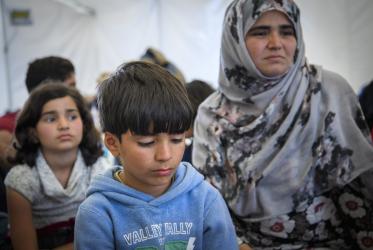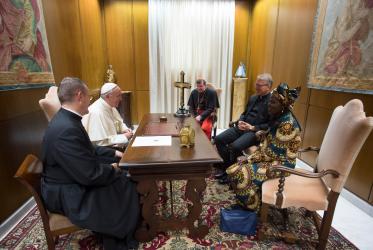Displaying 181 - 200 of 396
WCC greets Evangelical Church in Germany synod with appreciation
15 November 2017
With ongoing discourse about people on the move, CCME’s work grows
03 November 2017
Conference explores Christian approach to borders
05 October 2017
Roman Catholic-WCC group focuses on peace-building, migration
19 September 2017
Seminar explores how populist rhetoric leads to racism
07 September 2017
Pope Francis, WCC leadership meet in Rome
24 August 2017










